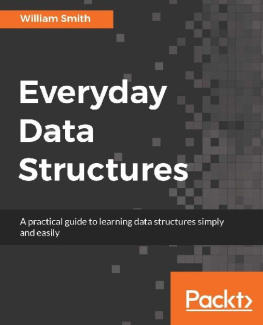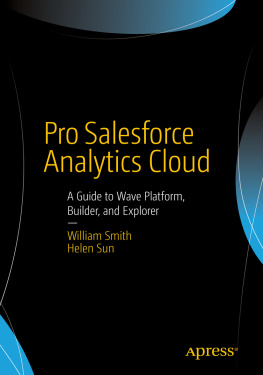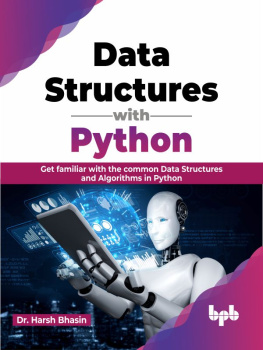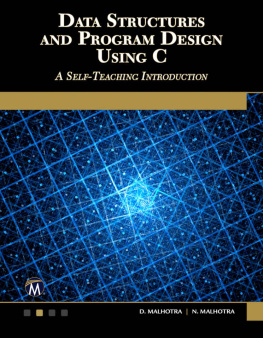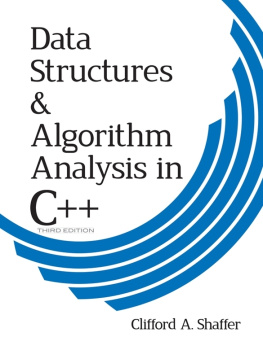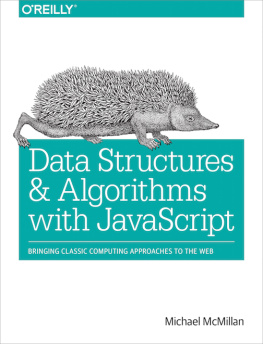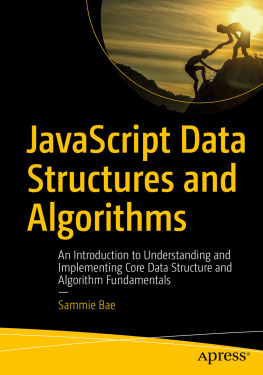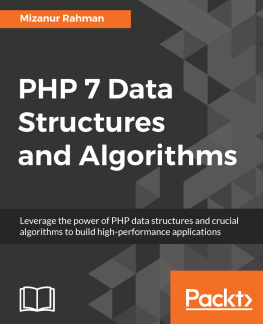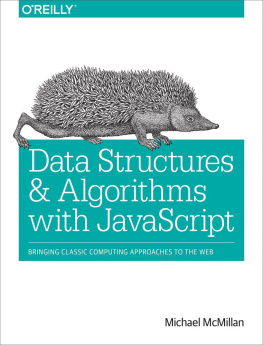William Smith - Everyday Data Structures
Here you can read online William Smith - Everyday Data Structures full text of the book (entire story) in english for free. Download pdf and epub, get meaning, cover and reviews about this ebook. year: 2017, publisher: Packt Publishing, genre: Home and family. Description of the work, (preface) as well as reviews are available. Best literature library LitArk.com created for fans of good reading and offers a wide selection of genres:
Romance novel
Science fiction
Adventure
Detective
Science
History
Home and family
Prose
Art
Politics
Computer
Non-fiction
Religion
Business
Children
Humor
Choose a favorite category and find really read worthwhile books. Enjoy immersion in the world of imagination, feel the emotions of the characters or learn something new for yourself, make an fascinating discovery.
- Book:Everyday Data Structures
- Author:
- Publisher:Packt Publishing
- Genre:
- Year:2017
- Rating:5 / 5
- Favourites:Add to favourites
- Your mark:
Everyday Data Structures: summary, description and annotation
We offer to read an annotation, description, summary or preface (depends on what the author of the book "Everyday Data Structures" wrote himself). If you haven't found the necessary information about the book — write in the comments, we will try to find it.
A practical guide to learning data structures simply and easily
About This Book- This book is a very practical, friendly, and useful guide that will help you analyze problems and choose the right data structures for your solution
- Learn to recognize data patterns for determining which structures apply to a given problem
- Explore the unique rules or gotchas that will help you become an excellent programmer
If youre self-taught programmers in any language who wants to gain a solid understanding of data structures and how to use them to solve real-world problems in your day-to-day development work, then this book is for you.
What You Will Learn- A rapid overview of data types, applications for each type, best practices and high-level variations between platforms
- Review the most common data structures and build working examples in the languages used for mobile platform software development
- Understand advanced data structure concepts such as generic collections, searching and sorting algorithms, and recursion
- Learn to use Stacks (LIFO) and queues (FIFO) in your daily application
- Add/remove objects and nest arrays and dictionaries within another dictionary and understand why such architecture is often preferred or necessary
- Get acquainted with the tree structures such as heap, binary, and graphs, apply them to work
- Unleash the power of different sorting techniques such as bubble sort, quick sort, merge sort, insertion sort, and radix sort
- Perform searching operations on arrays, heaps, graphs, and binary trees in different languages
William Smith: author's other books
Who wrote Everyday Data Structures? Find out the surname, the name of the author of the book and a list of all author's works by series.

